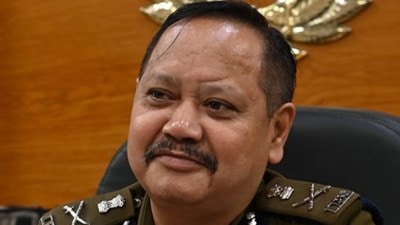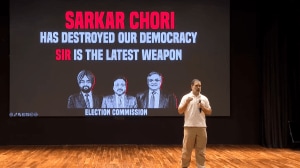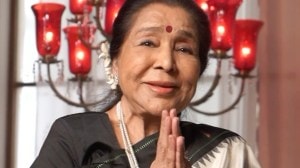Say it already
Centre needs to voice the clear case for the PMs presence at the Commonwealth meet in Sri Lanka.
Centre needs to voice the clear case for the PMs presence at the Commonwealth meet in Sri Lanka.
By dithering so long over confirming Prime Minister Manmohan Singhs attendance at the Commonwealth meeting in Sri Lanka,the government has not merely allowed greater space for Tamil Nadu politicians to spin a competitive spiral by calling for a boycott. It has also allowed a trivialisation of the public discourse on Indias foreign relations and commitments to multilateral groupings. A fortnight ago,amid high-pitched political rhetoric from Tamil Nadu,the prime minister had reassured DMK chief M. Karunanidhi that any decision on his participation would factor in the the sentiments of your party and the Tamil people. On Thursday,he fielded a boycott call from his cabinet and Congress party colleague G.K. Vasan. The Union shipping minister,who is also from Tamil Nadu,predictably counselled a boycott,and walked away with a similar promise about sentiments of people from his state. In the meantime,the foreign ministry spokesperson struggled to explain the delay in deciding,by saying that it would be taken after factoring in Indias national interest and international obligations.
It is obvious that the national interest and international obligations demand the prime ministers attendance at the Commonwealth Heads of Government Meeting. India remains invested in ties with the Commonwealth and,more deeply,with Sri Lanka. By failing to nuance the political calls for a boycott with reminders of Indias need to maintain leverage in the neighbourhood,the government is sending mixed signals about its sense of purpose in foreign policy. It is also allowing a particularly dangerous form of ethnic political mobilisation to be fuelled in Tamil Nadu. That it does no good to the Tamil minority in Sri Lanka,in whose name the boycott is called,was highlighted this week when C.V. Wigneswaran,the recently elected chief minister of the Northern Province who belongs to the Tamil National Alliance,invited Singh to visit Jaffna. He underlined his gratitude to India for weighing in on the side of the devolution promised in Sri Lankas 13th amendment.
There is a holistic and persuasive case for the prime ministers presence at CHOGM as well as for the India-Sri Lanka relationship to maintain its traditionally wide-ranging scope. Its time the Centre made it.



- 01
- 02
- 03
- 04
- 05




























